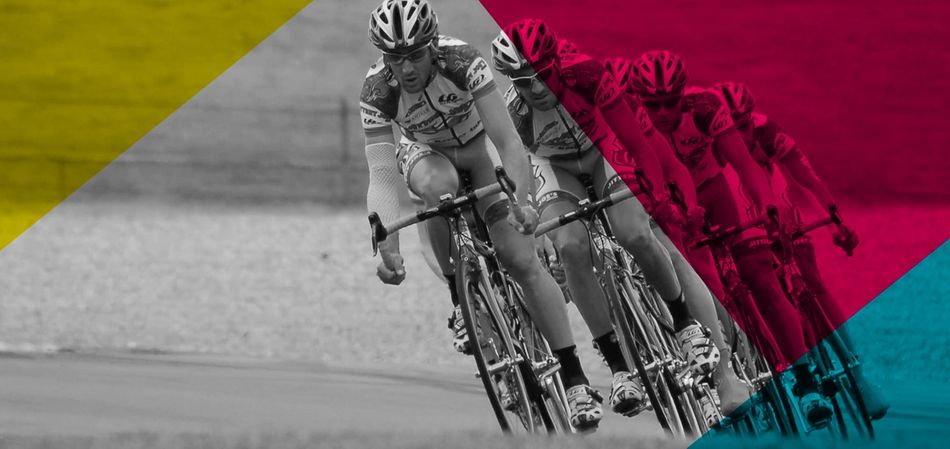
Every sport has its own set of rules, playbooks, and outcomes. The way each team plays the game, with their unique skills and strengths, determines who wins. It takes training and knowledge and mastery of the sport to be the best. So advice from someone who may be good at another game might not lead you to victory.
Think about it this way: if you're trying to win America's Cup as a team of professional sailors, you're probably going to take pointers from a basketball coach who knows little of the ins and outs of your sport with a pinch of salt.
Yet, in the world of work, we're often told that "best practices" are universal. That somehow teams across industries and disciplines are the same. This notion isn’t just inaccurate — it's foul play.
What it means to be a team changes between companies and even varies among groups at the same organization. We often define it as a group of people working with a common purpose. But that's where the 'universal' part ends. I'd argue that there's no such thing as best practices that work for all. What knowledge workers can learn from sports is that how you organize and lead your team is contextual.
A golf team (yes, they're a thing) in a tournament, for example, is a collection of golfers playing individual games, and their scores get tabulated at the end. Basketball players, however, play various offensive and defensive roles in concert during the same match.
We commonly think of high-performance teams as the latter. But there are quite a few teams made up of people not working collaboratively day-to-day and may not even share the same goals. It's not a bad thing. Depending on the type of work, the golf model could be the best way to get results. What's important is to decide on what kind of team you want to be and assess whether you're currently living that model in reality.
With such variation in how teams operate, it can be difficult to find good advice or learn from other people's experience. Let's say the only thing you share in common with your team is a manager. In this case, agile practices like stand-ups and retros are probably not going to be super helpful. You wouldn't know this unless you set the foundation for how you want to work. But what is the model for your team?
We put together this list of sports teams and how they relate to work styles. Looking at how you see other teams working through these lenses may help you get better results when choosing which practices to adopt.
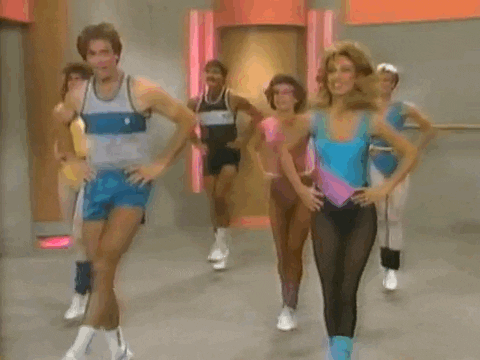
1. Gym class
Perhaps a less conventional view of a team, your gym class is indeed a group of people coming together with a common purpose. You also have a manager in your instructor.
Now, the reason attendees come to a yoga class or HIIT session might run the gamut, from getting in shape to training for a marathon, but there are social ties and a level of camaraderie that helps people get through the lesson. And any discord or misalignment from a participant could mess up the flow and prevent individuals from reaching their goals — the reason they came in the first place.
Your team is a gym class if you work mostly on solo projects on a shared timeline, but outcomes and rewards are based solely on the individual's work. We commonly see this with agencies or service teams.
This type of team works well in areas that call for a high level of freedom or highly decoupled work streams.
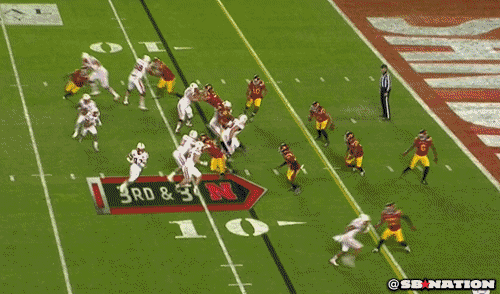
2. Football
In American football, roles are well defined. Each player has a specialized function that contributes to moving the ball into the end zone. Some players, like the quarterback, are more visible than others. But linebackers and safeties all have crucial roles in the game.
What makes football so different from other sports is that the defensive and offensive players belong to entirely separate teams. How the defense performs can determine how often the offense gets to play and influences their strategy, but their tasks are not directly reliant on one another.
You're like an American football team if your work streams are mature and less agile. For example, an engineering team maintaining a product may rarely interact with the SRE team who keeps the service running. Larger companies often have these team structures.
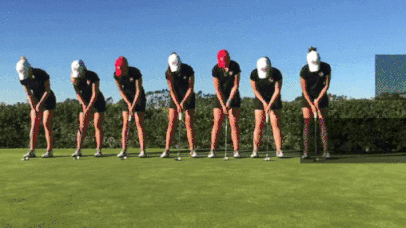
3. Golf
You don't usually see the words golf and team in the same sentence. But there are various forms of gameplay — like Scramble, Alternate Shot, and The Ryder Cup — that require golfers to 'work' as a team. The individual inputs determine the performance of the group. Take Better/Best, for example. Two players on each team play the same hole. Their score for the round is not the combined number, but rather the lowest ball score. So while they're mainly playing their own game, the player who does better does so for the entire team.
This model makes sense for sales and venture capital teams. Where there is little to no collaboration in terms of dependencies, but the better an individual does, the better the entire unit does.
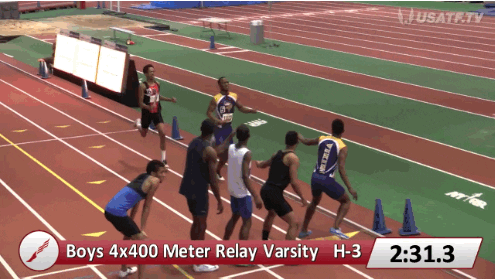
4. Relay (Track & Field)
Probably one of the most visual metaphors for teamwork in sports comes from track and field with the relay race. The first runner does their part in getting things started on the right foot. They hand it off to the next runner, making sure that the baton's transition is smooth. The next runner can get no further assistance from the previous one, and the third member is ready at the line. Finally, the baton gets to the anchor leg — usually the fastest and most experienced runner on the team — to wrap things up and usher the team over the finish line.
The relay is such a powerful metaphor. Like track and field, in modern workplaces, the handoff has an impact on the end product. Each individual's contribution drives things forward, and how they pass their work along affects the team members' performance. It's a bit like golf, but more intrinsically connected.
Small development teams doing waterfall development most resemble relay teams. For example, a sales executive hands off requirements for a new account to the product owner, who brings in a designer to spec out details, and then sends it to a developer for implementation.
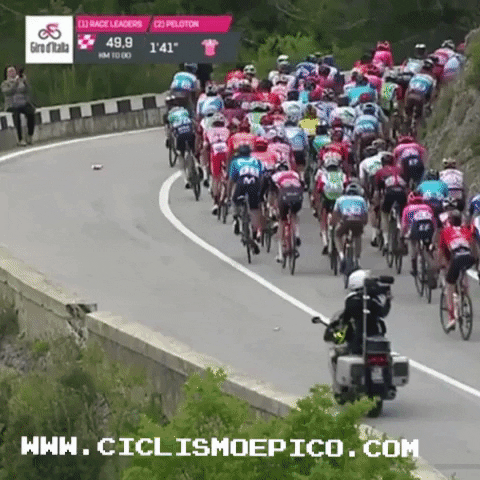
5. Cycling
The way cyclists help each other on a team is by literally curbing environmental forces. Cyclists ride close to one another, forming a peloton that reduces drag, helps save energy, and positions the team to perform better. The energy savings from the middle of the pack allows riders to rotate back out and engage the other teams in friendly competition.
High performance, cross-functional teams look like this. These teams of designers, engineers, data scientists, and marketers all work together to reduce project friction and adapt to the world.
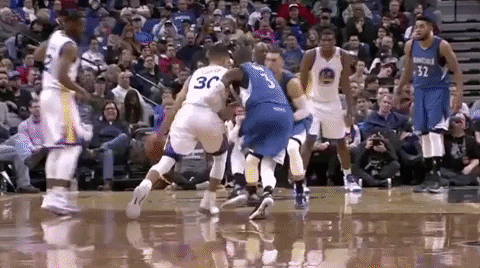
6. Basketball
Similar to football in specialization, basketball teams have players with unique strengths and specialty areas, but they're far more fluid and they all have similar skills. The game requires collaboration on the spot, and although they have coaches for training and guidance, the game dynamic and a mix of set plays and ad hoc thinking. Team members go from offense to defense at the drop of a hat, which requires switching their strategic mindset as well.
The best comparison I can think of for this one is startups—young, upstart companies with timelines that are days and weeks, not months and years. On these teams, everyone kind of needs to do everything. From coming up with new ideas for how to get the word out to keeping existing customers happy. Designers might code, and engineers might talk to customers. It's often an all hands on deck scenario mostly because there are so few hands.
So what?
Ultimately, one style isn't better or worse than the other. But taking time to reflect on the reality of how you are currently working and then clarify what type of team you want to be can help align everyone on their roles, set expectations for how you operate, and support team success.
Stay safe.








